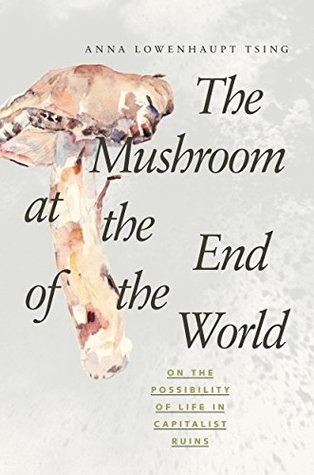Alienation obviates living-space entanglement. The dream of alienation inspires landscape modification in which only one stand-alone asset matters; everything else becomes weeds or waste. Here, attending to living-space entanglements seems inefficient, and perhaps archaic. When its singular asset can no longer be produced, a place can be abandoned. The timber has been cut; the oil has run out; the plantation soil no longer supports crops. The search for assets resumes elsewhere. Thus, simplification for alienation produces ruins, spaces of abandonment for asset production.
Welcome back. Just a moment while we sign you in to your Goodreads account.


